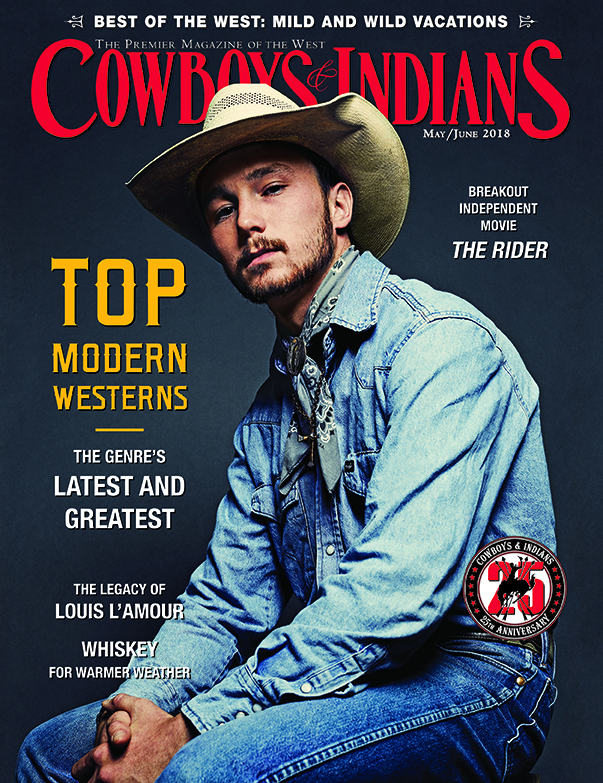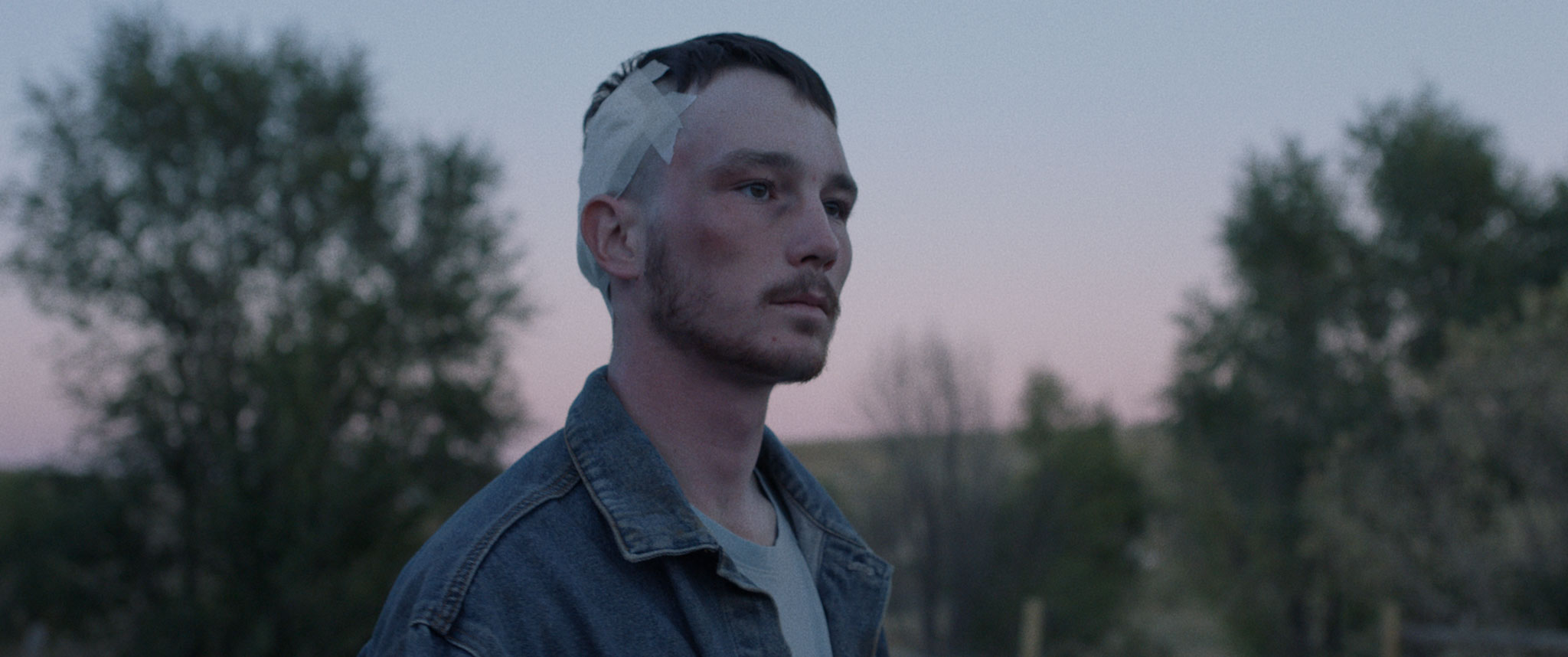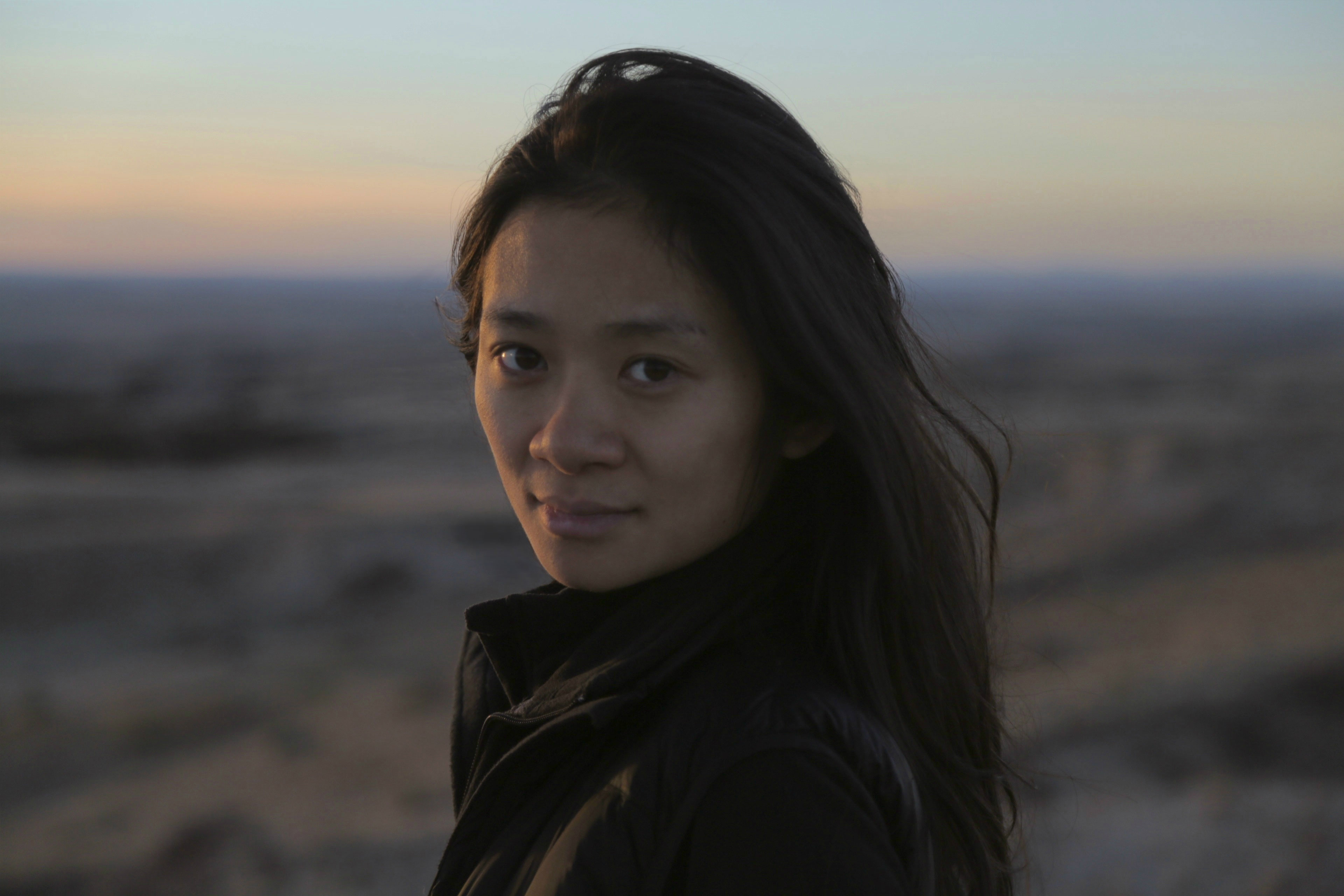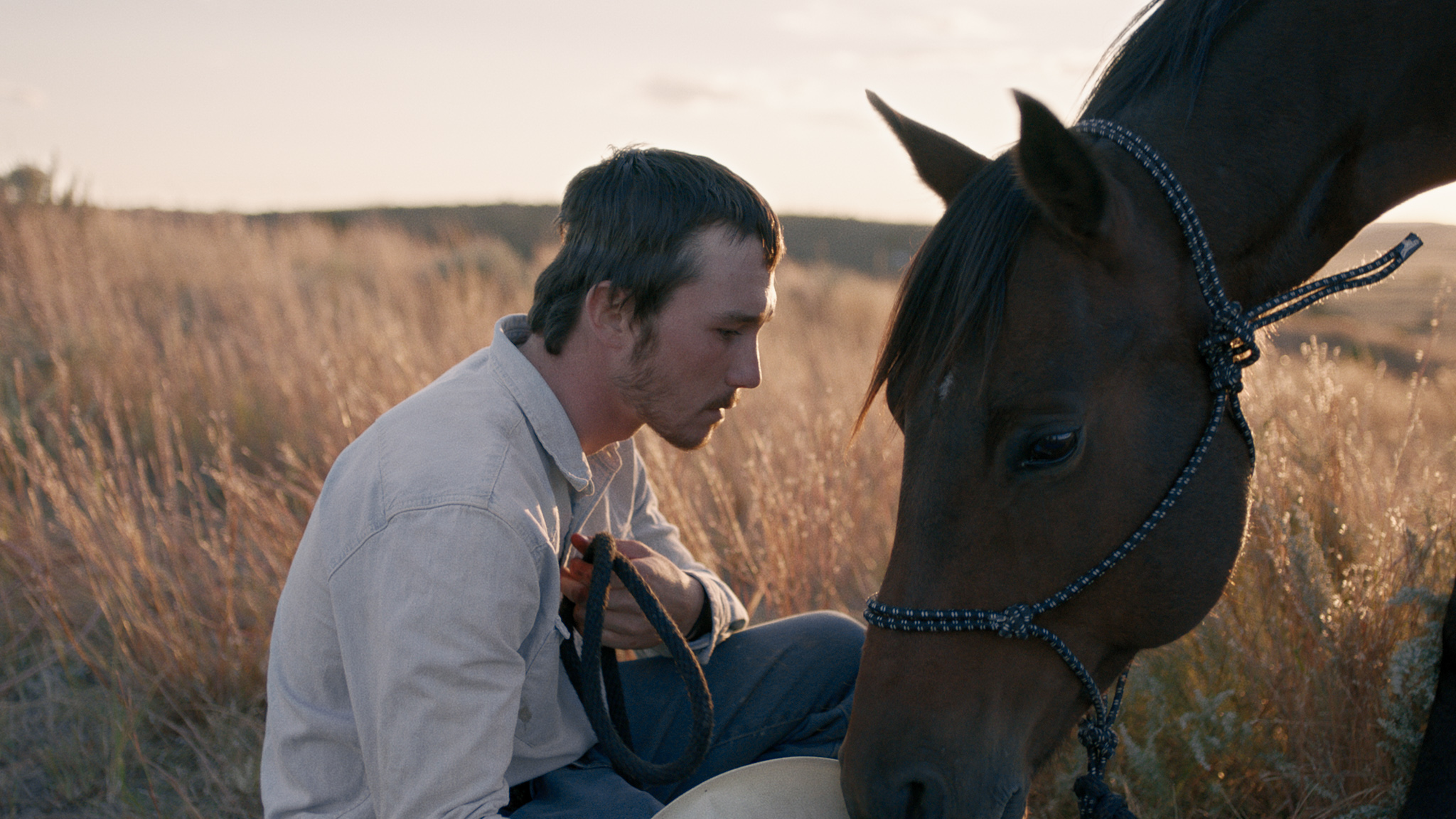An independent director and a real-life Lakota rodeo cowboy teamed up to make one of the breakout film festival sensations of the year.
Call it a textbook case of typecasting and you won’t be far off the mark.
When writer-director Chloé Zhao set out to make a movie about Lakota cowboy Brady Jandreau, a former rising star on the rodeo circuit whose competitive career was cut short by a near-fatal injury, she convinced Jandreau to star in the lead role. Right from the start, however, Zhao emphasized that her project, The Rider, would not be a traditional documentary. Rather, it would be a fictionalized drama inspired by Jandreau’s life and experiences, with members of his inner circle — all of them untrained as actors — more or less playing themselves.

Jandreau accepted the challenge, and helped to recruit his kinfolk — including his father, Tim, an old-school cowboy who taught his son everything he knows about horses, and Lily, his spirited and (partly due to Asperger’s syndrome) totally uninhibited kid sister. He had met and befriended Zhao a few years earlier after the release of Songs My Brothers Taught Me, her critically acclaimed first feature. Jandreau was working there at the time and taught the filmmaker how to ride horses. They developed a mutual trust, so Jandreau figured turnabout would be fair play, and he would feel comfortable following her directions.
And besides: How could starring in a movie be any harder, or scarier, than riding a bucking bronco in a rodeo arena while thousands of people watched?
“To be honest,” Jandreau says, “that’s what I enjoyed about acting more than anything else — the challenge of it. I liked how it challenged my emotions, and how I really had to be one with myself to bring myself to certain places. Like, I might have been laughing and joking about something one minute, and the next minute, Chloé might tell me I needed to cry for that scene. You know what I mean?”
For her part, Zhao never doubted that she’d found the right actor for the role. “Actually,” she says, “he’s the reason why there was even an idea for the film in the first place.”

Zhao visited Jandreau less than a month after his injury, “when he’d been told by his doctors that he shouldn’t even be lifting anything that weighs more than five pounds. And he was already back breaking horses.” When she asked why he continued to be drawn to such life-risking activity, he told her about Apollo, a horse he had been training.
“Brady said that, a few weeks earlier, he had to put Apollo down, because his leg got cut very badly by barbed wire. And then he told me: ‘Chloé, if any of the animals around here gets hurt like I did, they’ll be put down, too. I’m alive only because I’m human. And that’s not enough. I’m useless if I can’t do what I was born to do.’
“And as soon as I heard him say that, I knew I wanted to make a movie. And I knew I wanted him to say that line in the movie.”
On April 1, 2016, Brady Jandreau competed in the saddle bronc section of the PRCA rodeo in Fargo, North Dakota. He was coming off a string of wins during the season and felt good about his chances. Unfortunately, Jandreau was thrown off his bucking horse. Even more unfortunately, the horse stomped on his head, nearly crushing his skull. His brain bled internally; he had a seizure and fell into a three-day coma. No one was more surprised by his survival than Jandreau himself.
Jandreau now has a metal plate in his head and continues to be troubled by other health issues associated with a severe traumatic brain injury. The doctors advised him to never ride again. Except for retiring from the rodeo circuit, however, he has done precious little to follow that advice. Now 23, he continues to ride and train horses on the spread he operates with his wife in Rockyford, South Dakota. That is, when he isn’t traveling a different circuit — the international film festival circuit— to promote The Rider. The film’s journey has taken him and his director everywhere from Cannes to Toronto to Austin.
Chloé Zhao was born in Beijing, attended high school in London, and studied political science at Massachusetts’ Mount Holyoke College. “No, I didn’t study film when I was in college,” she says. “I actually focused on American politics, so that was my undergraduate degree. But I love telling stories. That’s probably an obsession that I’ve always had growing up.”
Does that mean she’s as inextricably bound to filmmaking as Jandreau is to horses? “It’s not quite the same thing,” Zhao responds with a gentle laugh. “He’s more like a musician. Training horses, that’s like a single thing. I think a film director is kind of like a jack of all trades. We aren’t really good at music or taking pictures, or all that stuff. But we kind of have our hand in everything. Film is just a form that made sense for me.
“The weird thing is, I didn’t really grow up with movies, so I haven’t seen a lot of westerns. Back in China we just didn’t have them. I think if I heard the words west or western, well, I’m from Beijing, so my fantasy about that would be geared toward the west in China, in Mongolia, with the plains and the horses there. And if I did hear about the American West, I’m sure I’d be imagining it must be something quite similar.”
For Songs My Brothers Taught Me, her 2015 debut feature, Zhao eagerly immersed herself in Native American culture to tell an affecting story about the relationship between Lakota Sioux siblings on the Pine Ridge Indian Reservation. She drew heavily on what she learned during that experience to accurately portray life on and around the reservation in The Rider.
“The people there have a very strong connection to the land and the animals,” Zhao says, “and it’s not a cliché, New Age thing. It’s very bone-deep in these people. So much so that they just can’t pick up and leave and work in the city. The young people, I think, struggle a lot with that identity. They’re on Facebook, they’re on Instagram. But at the same time, when they get out of their house, it’s the most beautiful place on earth.”
When she first met Jandreau — and even more so when they later reconnected after his accident — the young cowboy “gave me a lot of hope, because here is somebody who is living off of the land that he feels so connected to. He really goes fishing and hunting for food. And he has no interest in leaving — not because he can’t, but because he won’t. And he’s so connected with horses.”
And Zhao? Not so much.
“Unfortunately,” she admits, “this body is still the body of a Chinese city girl. I try, but sometimes I’ve fallen off horses. Again, I was raised in a metropolis. I don’t have that deep connection with animals, and I get very intimidated by them. Now, I will go out and ride a horse that Brady trained because I trust him. But, no, I can’t get rid of that fear that I’ve been told constantly that I should have gotten rid of by now.”
Giggling, she adds: “The horse can smell it. Yeah, I can smell it, too. [Laughs.] But they’re such powerful animals. You romanticize them a little bit when you go on a trail ride once in a while. But when I’m there in the wild on the plains in South Dakota, and I get one of those horses that Brady just finished training, they’ve still got some wild in them. It’s just a whole different story.”

While Telling Jandreau's story in The Rider, Zhao cast several of his friends and family members in supporting roles. One of the film’s most powerful scenes details Brady’s trip to a rehabilitation facility to visit Lane Scott, a young rodeo champion who was left paralyzed after an auto accident. “To see them interact was very moving,” Zhao says, “because they’re best friends who grew up together.”
“Yeah,” Jandreau agrees, “me and Lane have been like brothers ever since we were little kids. So all of that scene is completely legit. I just basically pretended like I was going to see him, just like it was any other time I was there.
“But I’ll tell you something kind of funny. Chloé wanted me to cry in this other scene, and so she was trying to help get there. Like, she asked, ‘OK, what’s something that might make you cry?’ Her initial idea was for me to just think about Lane and his accident. But we just got done seeing Lane. And Lane has been making some tremendous recoveries, so it was hard for me to cry. I mean, when I thought about Lane, I was happy, you know?”
Undeterred, Zhao continued to press: “OK, we need to think of something else. What’s the saddest moment you remember in your younger childhood life?” So Jandreau rummaged through his memories. “And I remembered a time when a colt died. It was an orphan that I’d raised on the bottle after its mom passed away. It fell through the ice as a yearling and died.”
That did the trick.
“Yeah,” Jandreau says, “I have to give her credit. I’m a horse trainer. But I always call Chloé an actor trainer.”
The Rider opens in select cities April 13 and expands nationwide in May.
From the May/June 2018 issue.
More Westerns:
Top Modern Westerns: 25 Films To Watch Now
'The Rider' Director Chloé Zhao Is Saddling Up For Another Western
The 100 Best Westerns Ever Made












